Cats and dogs of Morocco, things to know
When I do travel photography in a particular place, I find it intriguing to document the lives of all its inhabitants, not just the people. As in several countries (especially in the Middle East), Morocco has a fairly large population of stray dogs and cats that roam the streets in search of food and comfort among its population. Having written an article on What to Photograph in Morocco before, I wanted to add photographs of our feline friends to the series. I found it interesting that despite the poverty and poor living conditions in the country, many Moroccans went out of their way to provide food and shelter for stray dogs and cats.
In Morocco, cats and dogs may be seen almost anywhere: on the street, in shops, in monuments, observing visitors, alone or in groups, more friendly or more aggressive. And I’m not talking about the unmistakable salespeople, who teach everyone who visits Morocco, if they haven’t already, how to politely but firmly say “no.”
I’m referring to cats, which are found in vast numbers in the adjacent nation and for whom Moroccans have a particular fondness. As a result, this piece will focus on them and why, contrary to popular belief in most countries, cats are significantly more popular as companion animals than dogs.
Religious origin:
In a culture like the Moroccan one, in which religion is a fundamental part, it is advisable to look for an Islamic basis for any deep-rooted custom. For this, it is necessary to know that Moroccans have two main religious sources to turn to firstly the Koran and secondly the Sunna, a set of precepts based on the sayings and deeds of the prophet related by his disciples (known as hadith).
In this sense, the Koran does not speak at any time of cats and only three times of the dog, focusing primarily on its abilities as a hunter and guardian. There is a clearer distinction in the hadiths, pointing out among others that while if a dog has licked a bowl it must be washed thoroughly, this is not necessary in the case of cats.
Personally, I believe there is a sanitary problem at hand: Islam, like many other faiths, emphasizes actions that are based on respect for others and for oneself, while also attempting to protect the health of the community that adheres to it. Consider the issue of ablutions: in addition to its symbolic and ceremonial significance, given historical health concerns, they were most likely meant to signal specific regulations so that mosques would not become a source of infection.
I like to imagine that sanitary conduct is linked to a positive religious attitude among Muslims and that the cat is favored because it is seen to be cleaner. Obviously, there are a variety of interpretations, ranging from the person who believes that one should merely use common sense while making contact with a dog to the person who believes that having a dog nearby is a bad idea.
I don’t want to close this part without emphasizing that, despite many interpretations, Moroccans do not abuse dogs, as is sometimes assumed. So much so that the Koran regularly mentions the responsibility to respect all creatures and even considers their abuse to be a serious sin.
But is it true that cats tend to be cleaner than dogs?
To conclude, contrary to the picture at the beginning of this paragraph and to my partner’s embarrassment, every time I kiss my dog, he looks on in horror: yes. While cats spend many hours a day washing, removing parasites and dead hair, dogs, being a subspecies of wolves, prefer to wallow in the mud to mask their scent from their prey.
Yes, even if you don’t believe it, the pet you have at home and call by an adorable moniker has the instincts of a great hunter.
Current status:
To credit the cause for the admission to a single religious foundation would be simple, and it is more likely that a variety of tales and traditions play a vital role, with it being impossible to determine what percentage obeys each one.
To offer two instances from popular culture, it has long been assumed that the prophet had a liking for animals, particularly cats. According to oral tradition, he once got up to cut a portion of his robe because he didn’t want to wake up his pet cat as she lay on him.
When it comes to dogs, the tales are a bit more varied. One that stands out to me is the one that says that if a dog wanders across the desert like a scavenger, it may find and retrieve the bodies buried there. Surprisingly, it has some historical precedent, since it is known that in the past, Berbers would bury their dead in shallow graves, later altering them to deeper ones when they found they had been excavated by wild animals.
However, I believe that one of the key cultural factors that contribute to a Moroccan’s preference for a cat as a pet is their strong feeling of the community since they are acutely aware of all the dimensions that make up society: their street, their neighborhood, their city, and so on.
In that sense, an animal with more freedom and the ability to travel and integrate into all corners of the city is likely to be preferred over one that is unduly reliant on the care of a family. So much so that cats are generally not assigned to a certain residence and are instead cared for and fed by the whole community.
Whatever the case may be, the truth is that they choose cats as everyday companions, and this is only one of their cultural differences. Of course, using our western perspective as a yardstick and concluding that their preferences for sharing their lives with an animal are less valid would be a complete blunder, because it is simply another difference, and as a difference, it is positive and adds to our interest in a country so different yet so close to us.
Finally, considering my passion for shooting cats, I’ll leave you with a comprehensive gallery of cats in Morocco. Fortunately, I am not the only one who enjoys this pastime, therefore I’ve included some photos from friends who have shared them with us on social media. Thank you very much, and I’ll see you in the future article!
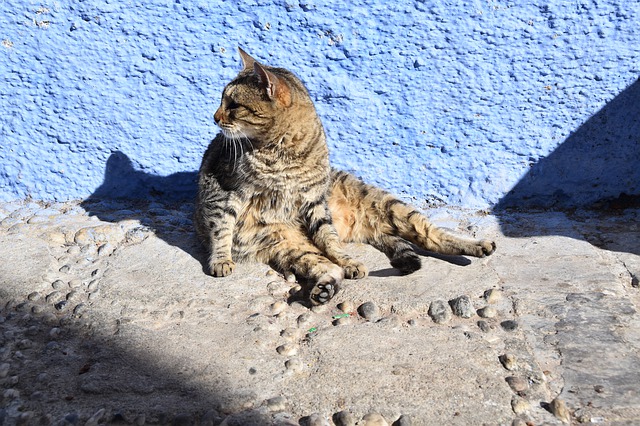
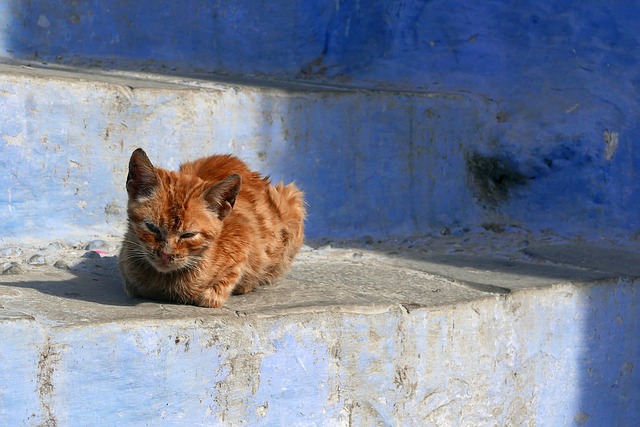
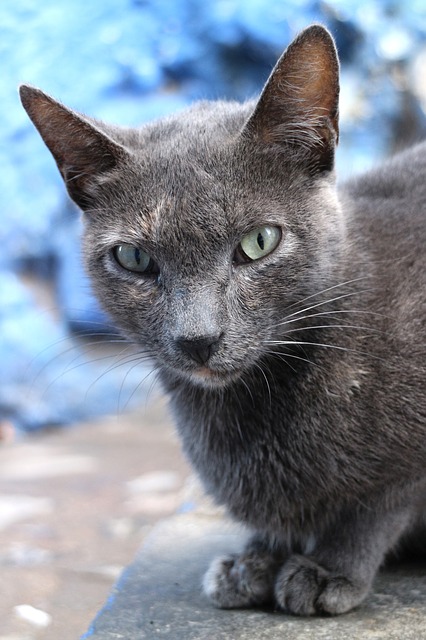
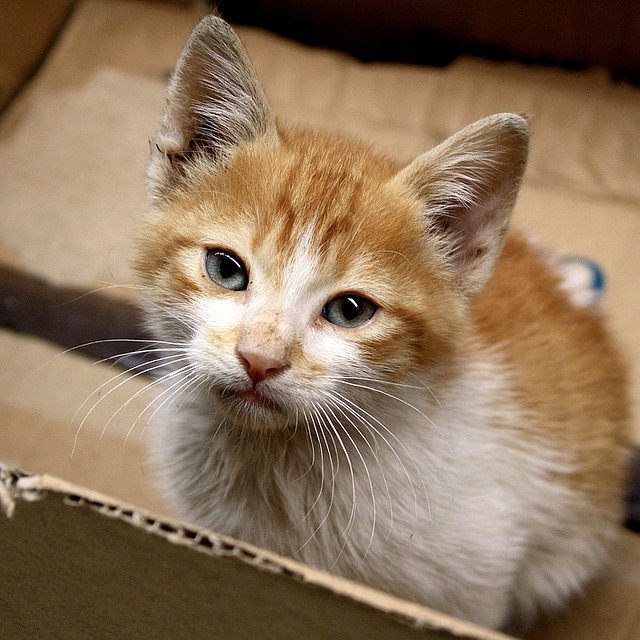
Articles to read:
- Morocco Almond Blossom Festival in TafraouteThere’s a big Festival in Tafraoute every year to celebrate almond blossom trees! These trees are very special, and the Festival shows how much people care about them. People from all over Morocco come to this fun event. There’s music, dancing, and even art shows! It’s a great way to see the beauty of nature … Read More
- Visiting Morocco During Ramadan: A Complete Guide for TouristsA truly unique experience is visiting Morocco during Ramadan. Getting ready for the trip of a lifetime means learning about Ramadan and what to expect during your trip. This may seem like a scary idea to some travelers. About Ramadan Ramadan is considered one of the holiest months of the year for Muslims. It’s a … Read More
- Moroccan Quotes to Inspire Your TravelCome into the world of Moroccan knowledge, where old quotes that can teach you important things about life have been passed down from one generation to another. These classic Moroccan quotes reveal truths about human life that everyone can relate to, helping people face life’s difficulties with great wisdom. Explore Morocco’s rich cultural history and … Read More
- Traveling from Ireland to Morocco: Important TipsIf you’re planning a trip from Ireland to Morocco, you are in for an exciting adventure! Let’s make sure you have everything sorted out so your journey is smooth and fun. First of all, picking your flight is key. Direct flights are quick and easy, but sometimes taking a flight with a stop or two … Read More
- Singapore to Morocco Travel GuideWant to go on a trip from Singapore to Morocco? It’s far away and very different! In Morocco, there are busy markets to see, delicious food to try, and old buildings to look at. But first, there are things to know to make your trip go well. We can help you figure out how to … Read More
- Morocco Visa Requirements for Taiwanese CitizensAre you planning a trip to Morocco from Taiwan? Great choice! However, Taiwanese citizens need to get a tourist visa to travel to Morocco. Start by applying for your Morocco tourist visa about six weeks before your travel dates. This way, you will avoid any unexpected problems. Morocco Tourist Visa Conditions for Taiwanese Citizens Morocco … Read More
- Cost of Travel in MoroccoThe cost of travel to Morocco can be affordable if you know what to expect and plan accordingly! Flights, places where to stay, getting around, food, and things to do all cost different amounts in Morocco. In this article, we will go through all of these things and give you some details so you can … Read More
- Backpacking Morocco: Everything You Need to Know for Your TripBackpacking in Morocco is a lifetime adventure for everyone. Do you love old things? Nature? Or just trying new stuff? Morocco is perfect for you! A country with a long history, beautiful mountains and deserts, and friendly people. So pack your backpack and get ready for an incredible trip to Morocco! In this travel blog; … Read More
- Sunset & Sunrise Camel Ride in Merzouga DesertPicture yourself riding a camel, slowly moving through the vast, serene dunes of the Merzouga Desert for the sunset or sunrise over the horizon. In these peaceful moments, you will see the sky transform with vivid colors, illuminating the golden sands in a magical light. This journey is more than just a camel ride; it’s … Read More
- Visiting Morocco in February, Weather and Travel TipsPlanning a trip to Morocco in February? Great choice! The weather at that time is mostly mild, and the country is less touristy. This makes it a wonderful month to see the beautiful landscapes and learn about the rich culture of this amazing nation. In the northern part of Morocco, the weather can be a … Read More
Cheetahs (Acinonyx jubatus), caracals (Caracal caracal), sand cats (Felis margarita), and wildcats (Felis margarita) are among them (Felis silvestris).
However, dogs are not often kept as household pets in Morocco. We noticed a few stray dogs and hundreds of stray cats wandering the streets… Moroccans regard dogs to be wild creatures, not household pets, as we discovered.
Cats have long been an integral part of Moroccan culture and daily life, coexisting peacefully alongside Moroccans. Despite the fact that the bulk of the cats are stray, neighbors often leave out bowls of water and food leftovers as a sign of good faith… Street cat in Morocco’s holy town of Moulay Idriss.
In contrast to most of the rest of the world, cats are the most popular pets in Morocco, and they have a stronghold over popular culture. The reason for this is due to Islamic teachings, which have resulted in a long-standing reverence of cats that has spread across the Muslim world.
Cats, which may be found in vast numbers across the nation and for whom Moroccans have a particular fondness. Contrary to popular belief, it is frequently favored as a companion animal above the dog in most nations. Dogs are considered dirty in Muslim culture, but cats are revered.

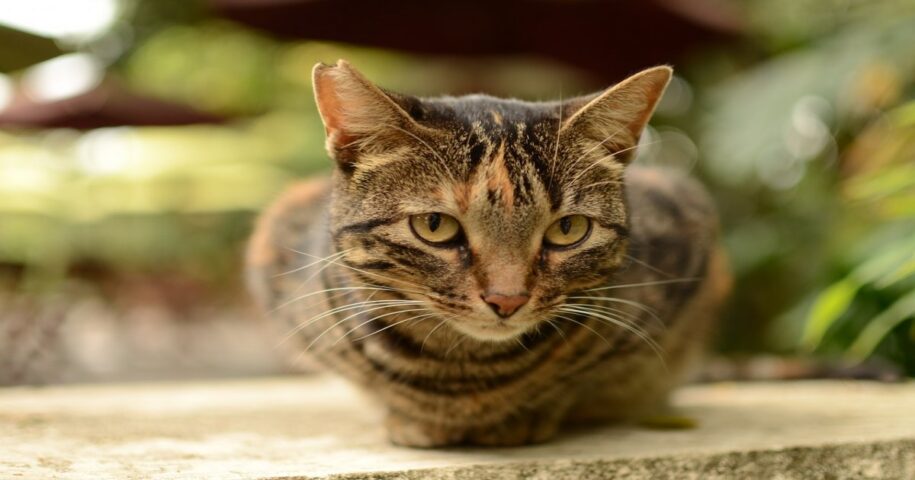
Leave a Reply